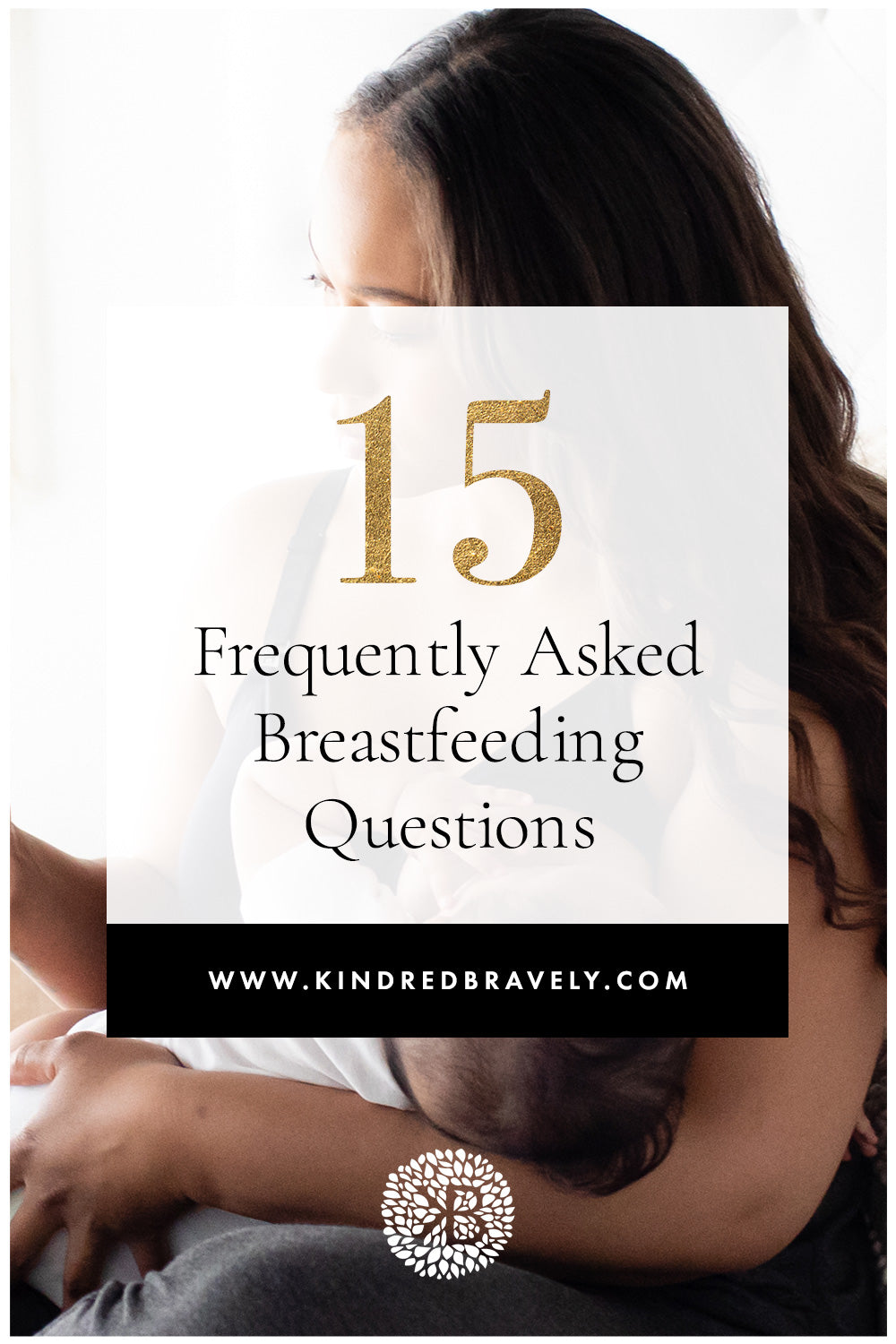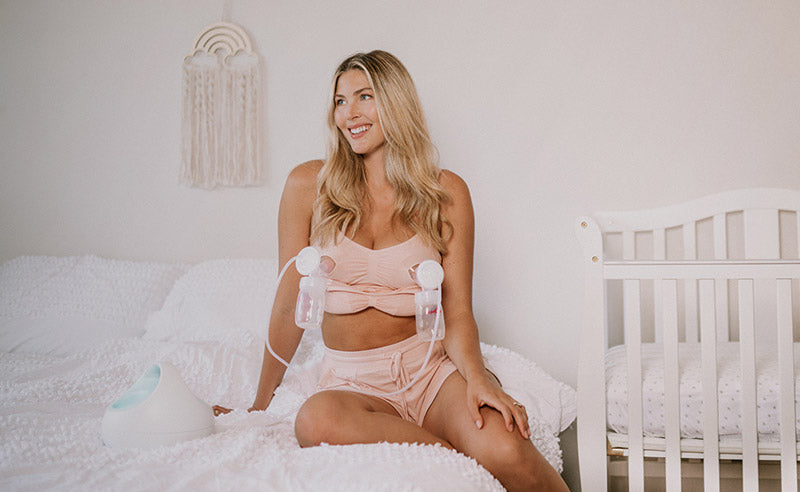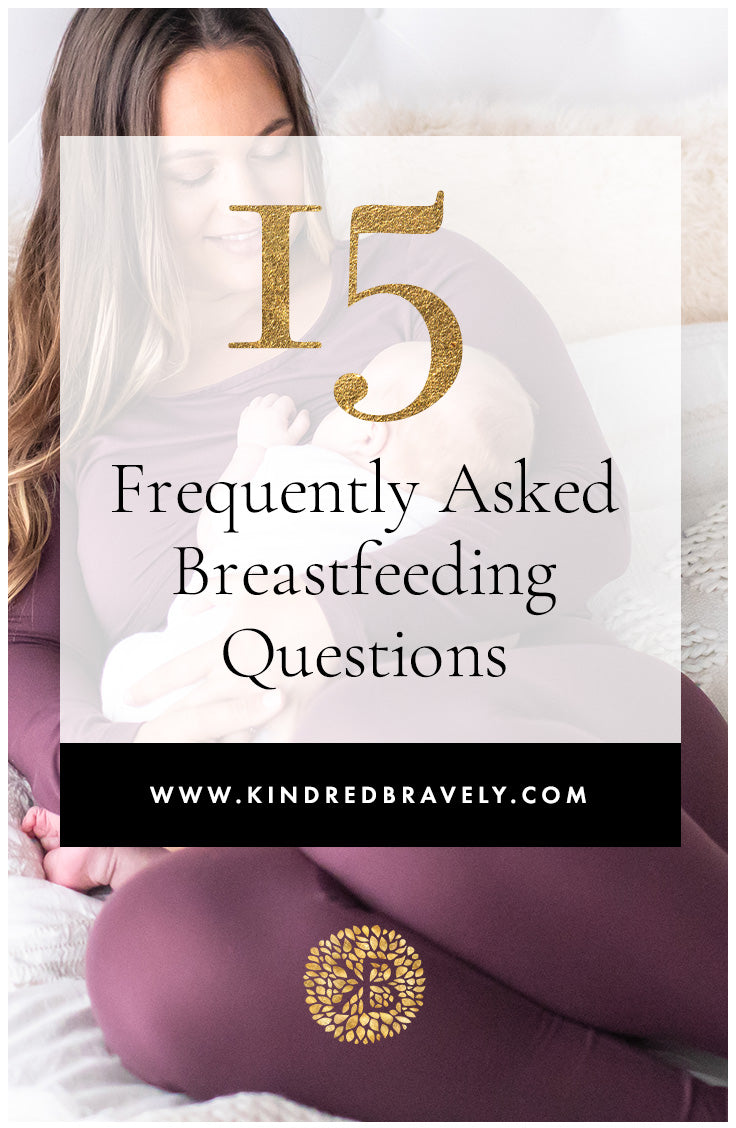Like pregnancy and delivery, breastfeeding is a unique experience with every child, and most people who breastfeed (first-time moms and veterans) have a lot of questions. Even as an RN and International Board Certified Lactation Consultant (IBCLC), I had questions when nursing each of my three babies. I’ve provided answers to some of the most frequently asked breastfeeding questions, as well as some resources for more questions you might have.

1. When does breast milk come in?
Milk production begins in the second trimester of pregnancy, around week 16. At that time, your body begins making colostrum, a special milk that’s full of essential nutrients and easy for newborns to digest.
Your milk supply will switch into overdrive about 30-40 hours after you’ve delivered your placenta. By that time, the change in your hormones has signaled to your body that it’s time to make more breast milk.
You may notice your milk change from thick, yellow colostrum to a creamier, golden-hued or white milk 2-5 days after you deliver. Your milk output should also start to increase from a few milliliters to a couple of ounces around this time. If you’ve breastfed before, your milk production may ramp up more quickly.
Read about the many colors of breast milk here.
2. How long should my baby nurse at each feeding?
Ending a feeding session before your baby has finished can hinder their milk intake and overall weight gain and potentially affect your milk supply.
But there isn’t a “perfect” number of minutes to nurse a newborn; in fact, I advise new moms not to watch the clock but rather to follow their baby’s cues. That said, noting session start and stop times with a breastfeeding app can help you keep track of how frequently your baby has eaten in the last 24 hours. You could also note which side you started on, hunger cues, etc.
The length of feedings can depend on many factors, and the rule of thumb is to allow your baby to nurse as long as they’re actively sucking and swallowing. After a feeding, your baby should seem satisfied and happy; they’ll have open or relaxed hands; they may even come off the breast themselves.
Learn more about breastfeeding a newborn here.
3. How can I tell if my baby is eating enough?
A breastfed newborn baby should nurse at least 10-12 times per day. Let your baby’s cues during nursing sessions tell you when they’re finished eating. If your baby is fussy, sucking on their fists, or rooting after a feeding, try offering the breast again.
The best way to track overall nutrition is through bowel movements, wet diapers, and weight gain. In the early weeks, your baby should have at least six wet diapers and two dirty diapers per day. If you’re concerned that your baby isn’t getting enough nutrition, talk to your pediatrician, IBCLC, or lactation counselor.
Learn more about your postpartum health care team here.

4. Do I need to wake my baby for feedings?
If you have a newborn who is not back up to birth weight, it’s very important to wake them up to feed. Newborns should eat at least 10-12 times per day, which means eating at least every 2-3 hours. If your baby is difficult to rouse, take their clothes off and put them skin-to-skin with you, change their diaper, or gently rub their body to wake them.
If your baby is back up to birth weight and gaining weight well, your pediatrician may tell you that you no longer need to wake your baby up to eat. If your baby is not waking up to nurse and is not gaining weight well, reach out to your pediatrician and lactation consultant to develop a plan to get your baby the nutrition they need.
If you’re feeling a little sleep deprived from night feedings, here are some tips!
5. My baby nurses constantly. Am I producing enough milk?
Daily bowel movements, appropriate weight gain, and contentedness after feeding are good indicators that your baby is consuming enough milk.
If your baby seems to be cluster feeding, they may be getting ready for or going through a growth spurt. Typical ages for infant growth spurts are around 2-3 weeks, 6 weeks, and 9 weeks. During these times your baby may want to eat more, telling your body to produce more milk for their increased needs.
While frequent nursing can be a sign of low milk supply or issues with transferring milk, babies nurse for reasons other than getting nutrients. Breastfeeding can also be a source of comfort and companionship.
If you have questions about your baby’s weight gain or your breast milk supply, talk to your baby’s pediatrician and your lactation counselor.
Read more about cluster feeding here.
6. Do I need to pump at night if my baby sleeps through the night?
Many people are concerned about their milk supply when their baby starts sleeping through the night. If your baby is not back up to birth weight or is not gaining weight well, they likely need to be woken up for nighttime feeding sessions. But if your baby is gaining weight well, you have a strong milk supply, and your pediatrician okays it, use this time to catch up on your sleep.
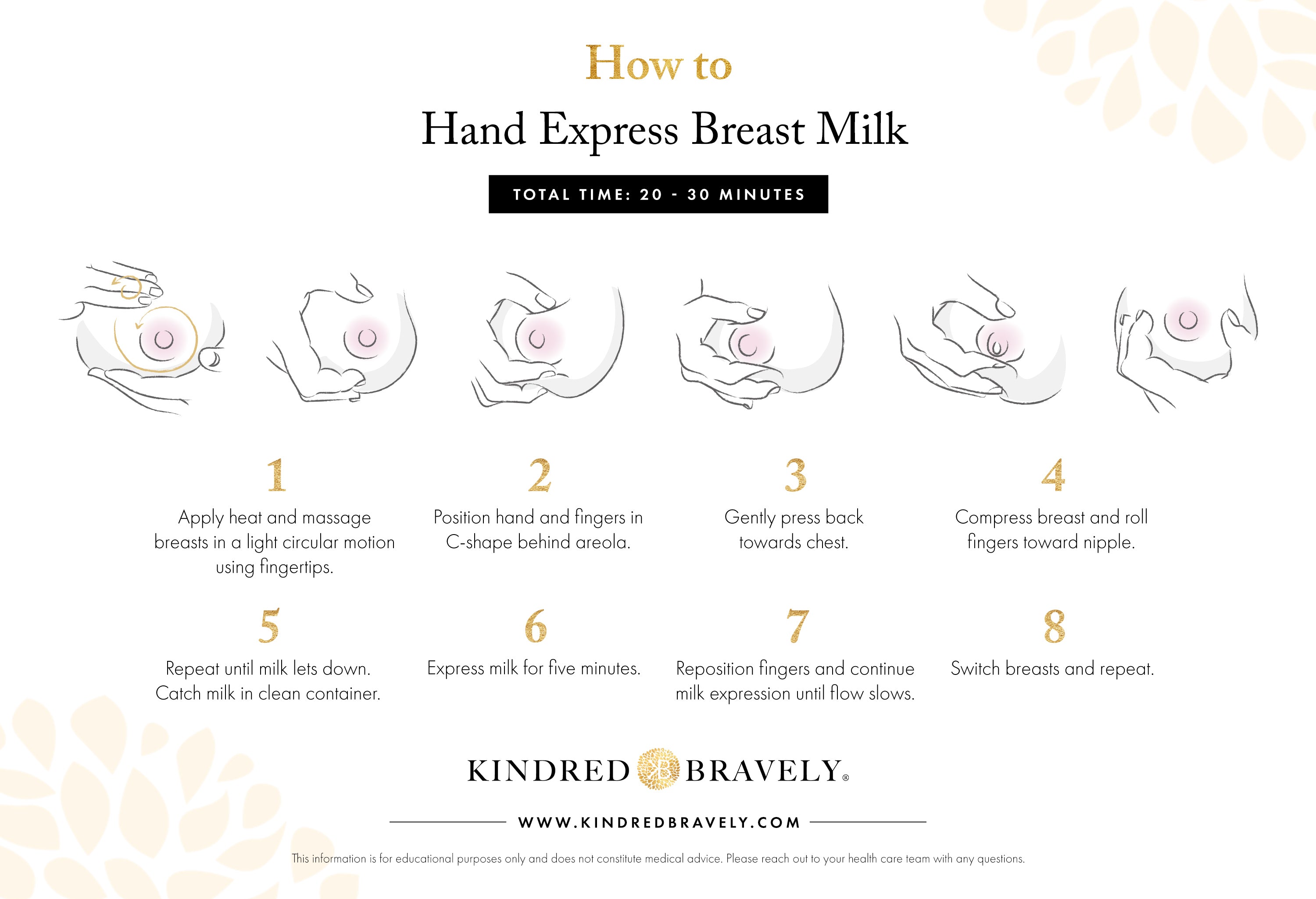
If you’re prone to plugged milk ducts, you may need to relieve some pressure at night either via hand expression or a quick pumping session; after a week or so, your milk supply should regulate, and you’ll be able to sleep comfortably during that time. (If you’ll be returning to work soon, you could use this missed nighttime nursing session to pump and store breast milk.)
Read more about clogged milk ducts here.

7. When should I start introducing solids?
UNICEF, the American Academy of Pediatrics, the World Health Organization, and many other health organizations recommend exclusively breastfeeding until your baby is at least six months old, at which point you can begin introducing age-appropriate, complementary solid foods. This gives your baby’s digestive tract time to mature and ensures they’re getting the specific nutrients they need from your breast milk.
When you begin solids, you could do classic baby foods like purees or try baby-led weaning. Talking to your baby’s pediatrician can help you make informed decisions about what foods to introduce and when.
Find simple, freezer-friendly baby food recipes here.
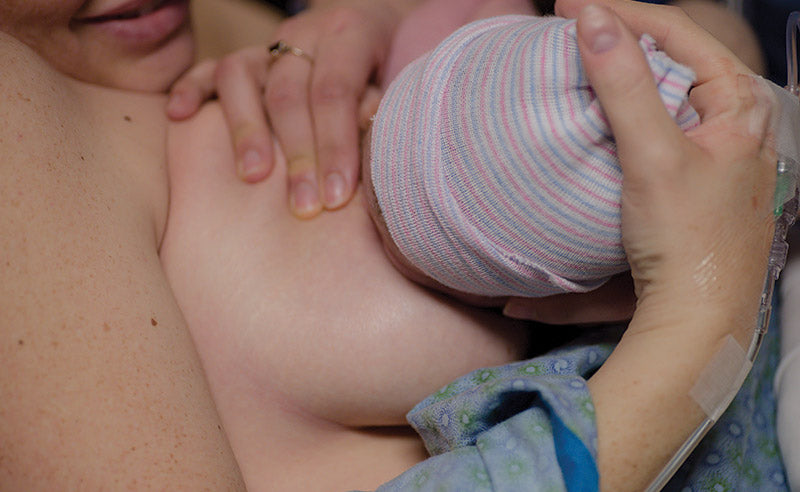
8. Is breastfeeding painful?
Many people wonder if breastfeeding hurts. Breastfeeding is usually not painful, but it can be in the early days, and some things could cause pain or discomfort throughout your breastfeeding journey. Engorgement, blocked ducts, poor latch, oral anatomy anomalies, thrush, nipple breakdown, and even a teething baby biting down can cause pain to the nipple or breast.
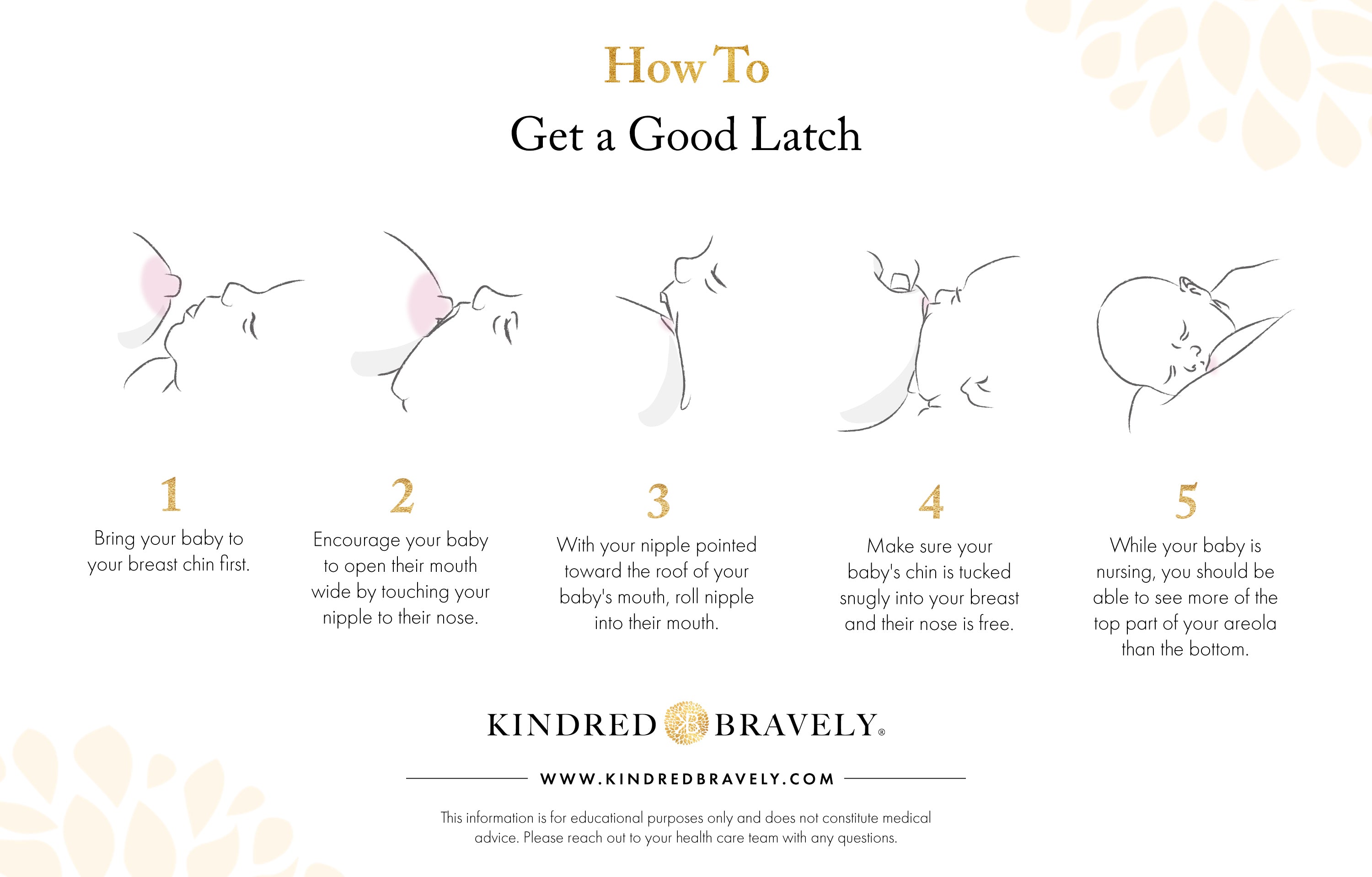
Often, a perfect latch can help solve painful nursing sessions. Some situations require further assessment by a health care professional like an IBCLC to help pinpoint and resolve the issue at hand.
Here are some breastfeeding affirmations for the days when breastfeeding is difficult.

9. Does my baby wake up at night because I’m breastfeeding?
The short answer? No. Your baby may wake up because they’re hungry, lonely, or uncomfortable (e.g., hot or cold). They may also be teething, going through a sleep regression, or getting ready to reach a developmental milestone like rolling over or sitting up.
Some breastfed babies won’t be soothed by rocking or other gentle measures, so you might want to nurse at night to help them fall asleep. When or if you choose to night wean is entirely your decision.
If it works for you and your family, nighttime feedings can be beneficial for your child’s weight gain and your breast milk supply because prolactin, the milk production hormone, peaks in the middle of the night.
Read more fascinating facts about breast milk here.

10. Can I take medication while breastfeeding?
There are many reasons a nursing mom may want to take medication, whether it’s allergies, a headache, underlying health conditions, or C-section recovery. The good news is there are many medications on the market that are compatible with breastfeeding.
If you’re breastfeeding and want to continue, but your doctor or pharmacist informs you a medication may not be safe while breastfeeding, you can request a medication that is safe. You can also call the Infant Risk Center or talk to your IBCLC about what medications and dosages are safe while breastfeeding.
Read more about breastfeeding after a C-section here.
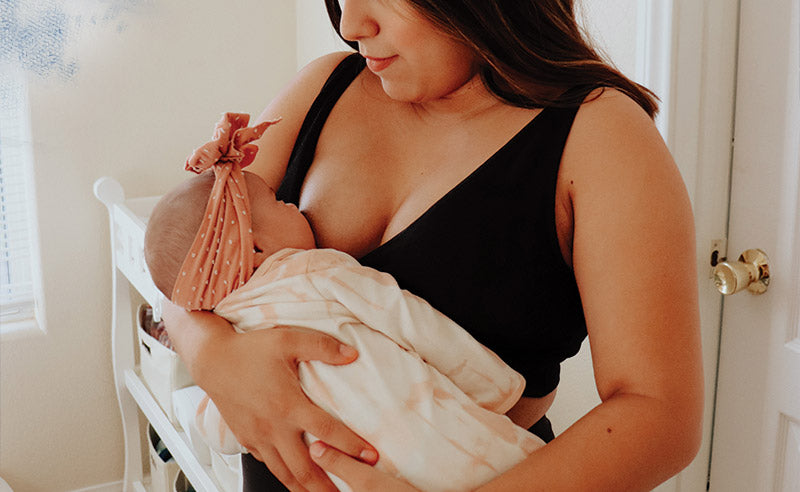
11. Do I really need a nursing bra?
Nursing bras are designed to provide you the gentle support and access you need as your breasts change during your breastfeeding journey. Traditional bras are often constrictive, leading to issues such as clogged ducts or mastitis; they may not allow your skin to breathe, and the material may irritate sore nipples.
Good nursing bras are generally super-soft and feature cups designed to pull aside or clip down to allow you to get your baby latched on quickly and easily.
Read more about bra fitting and choosing the best nursing bra here. (You may be wearing a nursing bra or a pumping bra [or a combo!] day and night for quite a while, so pick a great one!)
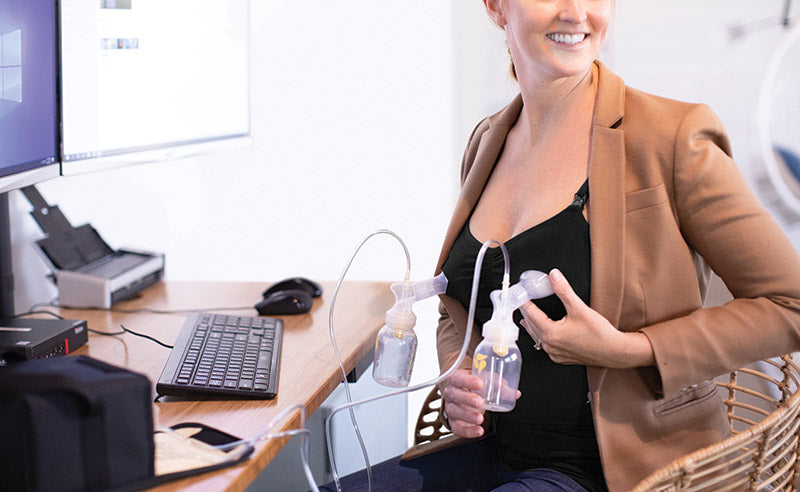
12. I’m going back to work soon. When should I start pumping?
A good time to start building up your milk supply is 2 - 4 weeks before you head back to work. Many people notice they produce the most milk first thing in the morning. To capitalize on this, pump right after your morning feed for about 10 minutes. Even though you might not get much at first, pumping tells your body to make more milk than it had been. With continued pumping at the same time each day, your body will start to increase its milk production, allowing you to have extra to pump and save.
Keep in mind that you don’t need a huge freezer stash for returning to work. You just need enough to get you through your first day or two back since you’ll be pumping at work whenever your baby is eating.
Read more about pumping and returning to work here.
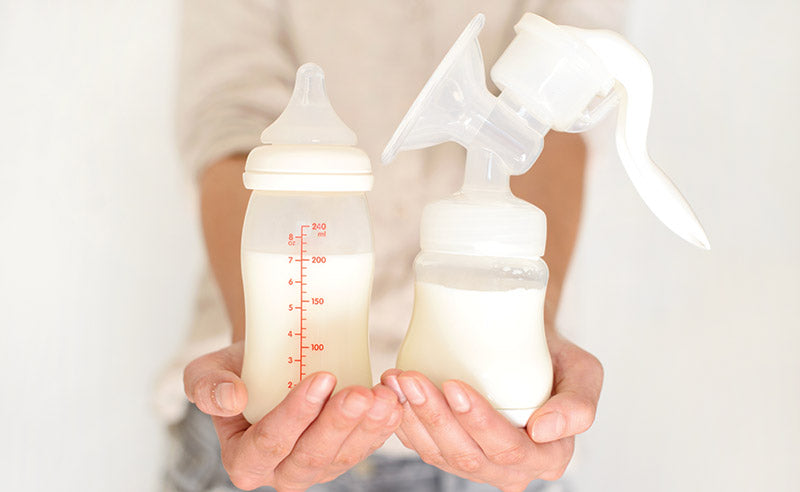
13. How should I store my breast milk?
Whether you pump breast milk exclusively or occasionally, ensuring your liquid gold is protected is critical. There are many storage options: bags, glass jars, plastic bottles, etc. Choose whichever works best for your breast pump, lifestyle, and fridge or freezer storage space.
When storing your milk remember that it can be left at room temperature for 4-6 hours, in the refrigerator for 4-6 days, and in the freezer for 4 - 6 months. Storing breast milk in 2-4 oz increments will decrease thawing and warming times and also help cut down on milk waste.
Read more about breast milk storage here.

14. How much should I eat while breastfeeding?
It’s generally recommended that a lactating person consume an extra 300-500 calories/day, but it’s important to keep in mind that everyone is different. Some people who are breastfeeding experience extreme hunger while others feel like they don’t have much of an appetite.
I like to remind breastfeeding moms to eat to hunger and drink to thirst. Listen to your body, try to have a balanced diet, and pay attention to things you drink and eat (e.g., caffeinated beverages, spicy foods) to see if they affect your baby. Make sure to grab a quick and healthy snack to munch on while you feed your little one.
Read about healthy weeknight meals here.

15. Can I continue breastfeeding if I’m pregnant?
For a healthy person with a healthy pregnancy, the answer is usually yes. Talk with your OB or midwife at your prenatal visits about your plans to continue nursing during your pregnancy.
Unless you have an underlying medical condition, notice a drop in supply that is affecting your baby’s weight gain, or have symptoms that deter you from continuing your breastfeeding relationship, you should be able to continue nursing throughout your pregnancy. You may even be able to tandem feed once your baby is born if you choose.
Read about breastfeeding toddlers here.
I hope this helped answer some questions you may have. What other questions do you have? Let us know in the comments, and we’ll help you find the answers. Your question may even be featured in a future blog!
This information is for educational purposes only and does not constitute medical advice. Please reach out to your health care team with any questions.






